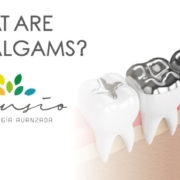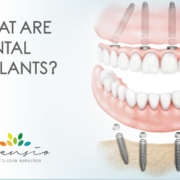What are dental amalgams?
Amalgams are the material largely composed of mercury and an alloy of silver, tin, and copper, which is used to fill gaps where tooth decay occurs. It has been used for more than 150 years in hundreds of millions of patients around the world.
The main risk of this material is that it contains mercury and can be released in the form of a vapor, which can be inhaled and absorbed through the lungs in surgery with personnel not qualified for this type of action. The International Academy of Oral Medicine and Toxicology (IAOMT) describes a product based on the protection of the patient and the dentist from the vapor and mercury particles released in the process. In its vapor form, inhaled mercury will pass into the blood system by up to 80%. At Asensio Odontología Avanzada, we use a unique protocol with highly qualified staff and all the innovation in equipment and technology necessary for these successful withdrawals.
Alternatives to dental amalgam
At Asensio Odontología Avanzada, we are committed to comprehensive and holistic dentistry abroad. One of our main objectives is to take care of the dental health of our patients, contributing and respecting the environment, with the use of top-quality biocompatible materials.
Amalgams contain mercury, a material highly toxic to health in general. Instead, the most common filling is with composite resins or composites or glass ionomer. It is a mixture of an organic or resin matrix and an inorganic one, which will form the filling that will give the tooth hardness and resistance.
The resin that is most used today is BIS-GMA or bisphenol-a and its derivatives. They have been shown to be endocrine transducers that affect our endocrine system.
Like all direct filling materials, they are all used to restore the surface of the tooth that has been damaged by decay.







